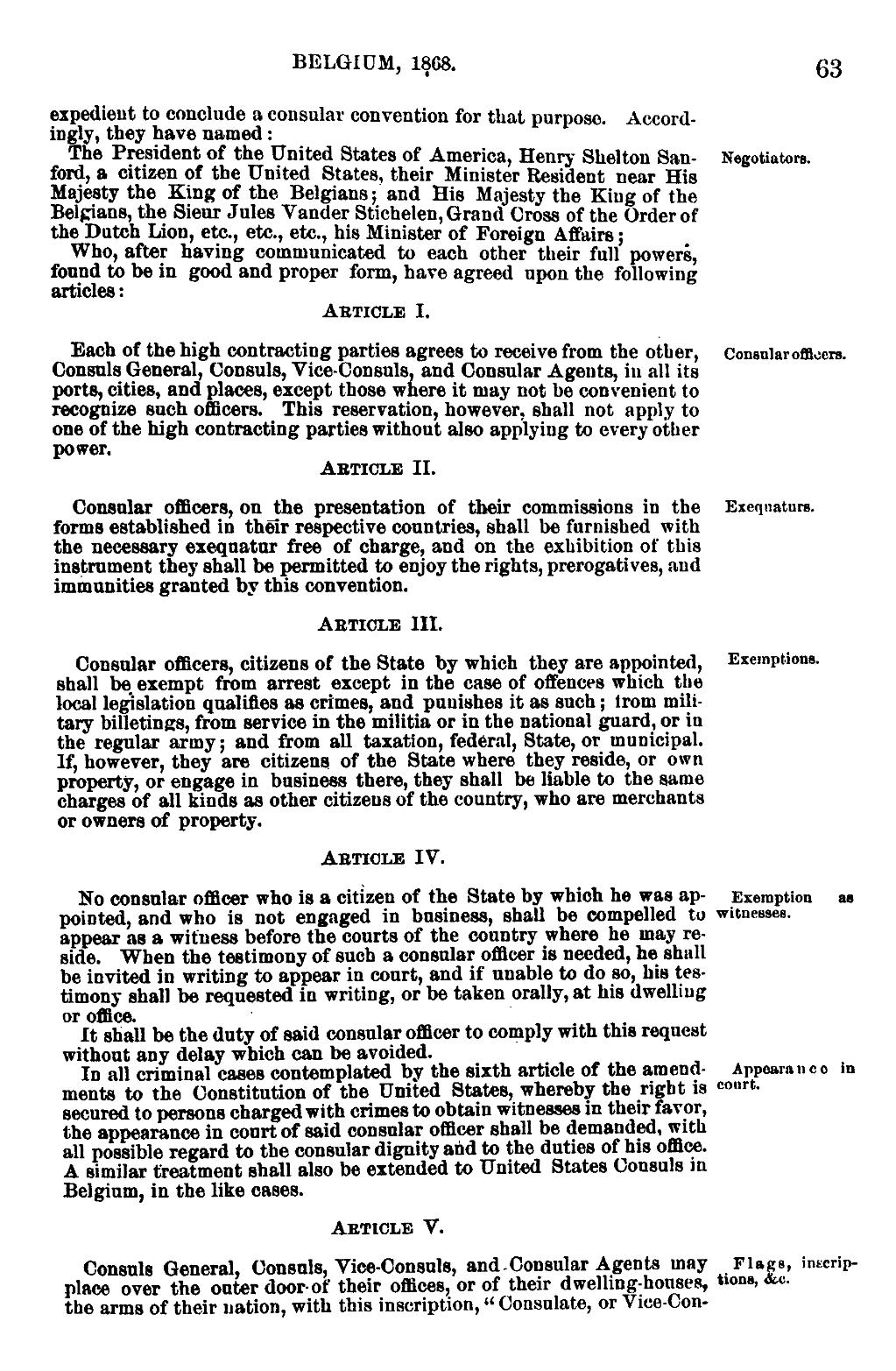BELGIUM, 1£}68. 63 expedient to conclude a consular convention for that purpose. Accord. ingly, they have named: The President of the United States of America, Henry Shelton San- Negotiutors. ford, a citizen of the United States, their Minister Resident near His Majesty the King of the Belgians; and His Majesty the King of the Belgians, the Sieur Jules Vander Stichelen,Grand Cross of the Order of the Dutch Lion, etc., etc., etc., his Minister of Foreign Afairs; Who, after having commumcated to each other their full powers, found to be in good and proper form, have agreed upon the following articles: ARTICLE I. Each of the high contracting parties agrees to receive from the other, csmuiammem, Consuls General, Consuls, Vice-Consuls and Consular Agents, in all its ports, cities, and places, except those where it may not be convenient to recognize such officers. This reservation, however, shall not apply to one of the high contracting parties without also applying to every other power. Anrrcnn II. Consular officers, on the presentation of their commissions in the Exequaum. forms established in their respective countries, shall be furnished with the necessary exequatur free of charge, and on t-he exhibition of this instrument they shall be permitted to enjoy the rights, prerogatives, and immunities granted by this convention. Anrronn III. Consular officers, citizens of the State by which they are appointed, E¤•=*¤Pli°¤¤- shall beexempt from arrest except in the case of offences which the local legislation qualifies as crimes, and punishes it as such; lrom military billetings, from service in the militia or in the national guard, or in the regular army; and from all taxation, federal, State, or municipal. 1f, however, they are citizens of the State where they reside, or own property, or engage in business there, they shall be liable to the same charges of all kinds as other citizens of the country, who are merchants or owners of property. Anrxonn IV. No consular ohlcer who is a citizen of the State by which he was ap- Exemption as pointed, and who is not engaged in business, shall be compelled to witnesses. appear as a witness before the courts of the country where he may reside. When the testimony of such a consular oiilcer is needed, he shall be invited in writing to appear in court, and if unable to do so, his testimony shall be requested in writing, or be taken orally, at his dwelling or onice. · ‘ It shall be the duty of said consular oilsicer to comply with this request without any delay which can be avoided. In all criminal cases contemplated by the sixth article of the amend- Appearan cc in ments to the Constitution of the United States, whereby the r1ght 18 *=°¤*‘°· secured to persons charged with crimes to obtain witnesses in their favor, the appearance in court of said consular officer shall be demanded, with all possible regard to the consular dignity and to the duties of his olllce. A similar treatment shall also be extended to United States Consuls in Belgium, in the like cases. Anricnn V. Consuls General, Consuls, Vice-Consuls, and.Consular Agents may _ Flags, mmapphwe over the outer door·of their offices, or of their dwellingjhouses, *¤•>¤¤» M- the arms of their nation, with this inscription, “Consulate, or Vice-Con-
